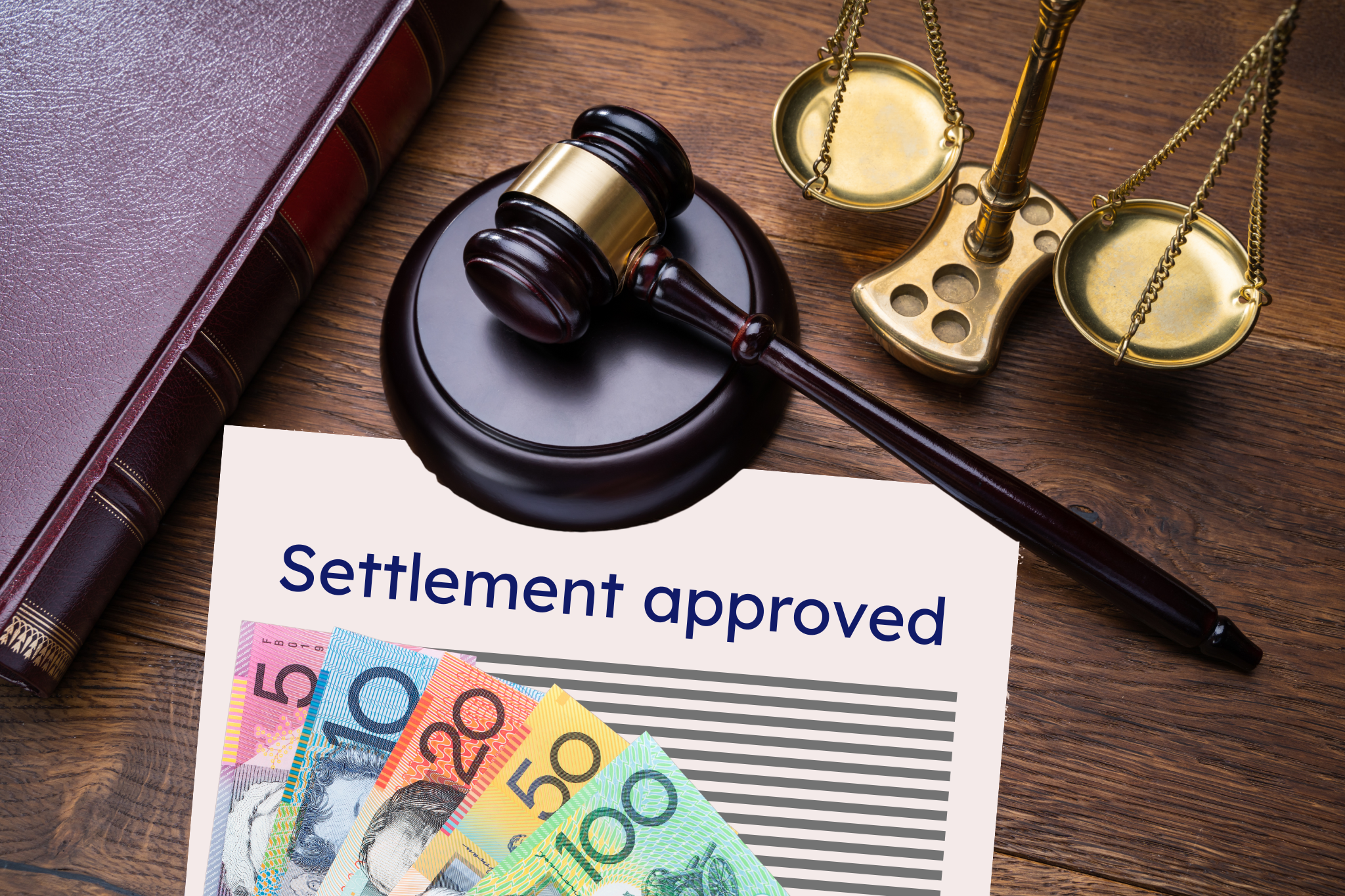
Drive with assurance: Understanding insurance and rights for your leased car
Last updated on November 22nd, 2023
Leasing a car can be as exhilarating as a drive down the open road. But, much like any journey, it's essential to be prepared for the twists and turns ahead. Insurance considerations and consumer rights might not be the first things on your mind, but they're crucial to ensuring a smooth ride.

How do you ensure you're protected if things go south? What rights do you have once you sign on the dotted line?
We’ll guide you through some often overlooked aspects so you can have confidence as you navigate the leasing landscape.
What happens if you lease through work and finish that job?
When you have a novated lease and decide to change jobs or if your position is terminated, the novation agreement remains fully transferable. This means either:
-
-
- The lease obligations are transferred directly to you, the employee. This ensures that even if you're not with the original employer, you can continue making payments towards the novated lease. If this happens, you’ll lose the benefits tied to the salary packaging that your original employer provided, such as the pre-tax benefits.
- In certain situations, if you move to a new job, your new employer might agree to take on the lease obligations, allowing for a seamless transition.
-
Contact your novated lease provider if you're contemplating a job change or have concerns about potential job loss. They can guide you through the next steps, ensuring you're well-prepared for any changes in your employment status.
What happens if you miss a car lease payment?
When you miss a car lease payment, the immediate consequence is usually a late fee. This additional charge is stipulated in your lease agreement and is added to the total amount you owe.
The leasing company will typically send you a notification or reminder shortly after the missed payment. This could be a letter, email, or even a phone call, alerting you to the overdue amount and offering solutions or next steps.
Your credit rating may be negatively affected if you don’t address the missed payment promptly, as the leasing company might report delinquent payments to credit bureaus.
If you miss multiple payments, the leasing company might consider the lease to be in default. This could lead to repossession, where the company takes back the vehicle.
Communicate any financial difficulties with your leasing company early on. Many are willing to work out modified payment plans or offer other solutions to prevent the situation from reaching this point.
How does car insurance work on a leased car?
When you lease a car, you're not only required to have the minimum state-mandated liability insurance; you must carry comprehensive and collision coverage. This is because the leasing company or the financial institution still owns the vehicle. And fully comprehensive insurance ensures that their asset – the car – is safeguarded against all potential risks.
While leasing a car allows you the freedom to choose your own insurance provider, it's essential to ensure that your chosen policy adheres to the coverage requirements set by the lessor. Not doing so could lead to a breach of your lease agreement.
Furthermore, it's essential to read your lease agreement and insurance policy carefully, especially regarding who can drive the leased car. Some lease agreements may specify permitted drivers, and specific insurance policies might only cover those named on the policy.
What if I have an accident in a leased car?
Aside from informing your insurer, you may have to notify the leasing company about the accident, depending on the terms of your lease agreement. They may have directives, especially concerning repairs, given they are the vehicle's owners. The leasing company might have specific requirements or preferred repair facilities.

In cases where the car is deemed beyond repair or a "total loss" (meaning the repair costs would exceed the car's value), the insurance company typically pays out the car's current market value. There might be a discrepancy between this amount and what you still owe on the lease.
You must continue your scheduled lease payments even after an accident until the insurance matter is settled. After settling the claim, there could be adjustments based on the settlement sum and if gap insurance is in place.
Will I be offered a new car for lease?
The answer to this question largely depends on the type of lease you have and your insurance coverage. In the case of a novated lease, some insurance policies offer a "New for Old" cover feature. This means that if your leased vehicle is written off in an accident, a new car will be substituted into your existing lease contract, allowing the lease arrangements to continue as usual. This essentially rolls over your existing lease contract to the new vehicle.
What is the consumer guarantee on a leased car?
According to the Australian Consumer Law, “leased … vehicles are covered by the consumer guarantees, with the exceptions of the guarantees as to title and undisclosed securities. The guarantee for undisturbed possession applies only for the term of the lease or hire”.
This means that when you lease a car, you are entitled to consumer guarantees, ensuring that the vehicle you're leasing:
-
- Is of acceptable quality,
- Suits the specific purpose you've mentioned,
- Matches its provided description, and
- Grants you the right to repairs, replacements, or refunds if there's a fault or issue.
If the vehicle you're leasing is recalled, the lessor should offer a solution - either a repair, replacement, or refund. It's essential to refer to your lease agreement to understand the responsibilities of each party fully. Also, check if the lessor will provide a rental or loan vehicle for you to use.
You're also protected under the guarantee of undisturbed possession, allowing you to use the leased vehicle without hindrance from the seller or any third party. This protection, however, extends only for the term of your lease.
Two specific guarantees do not apply. The first is the guarantee as to title, which ensures that when you buy a product, you have the right to own it, and it's free from any claims by other parties. The second is the guarantee against undisclosed securities, which ensures that the product has no hidden debts or charges against it.
Note that there is no warranty on the vehicle other than the automatic consumer guarantees under Australian Consumer Law.
Other commonly asked questions
Can I fill up with petrol anywhere I like?
If you have a non-maintained lease package, you generally have more control over running costs and maintenance, including where you buy fuel. In this scenario, you're free to fill up at any petrol station you prefer. Just make sure the fuel meets the vehicle manufacturer's specifications.

On the other hand, if you have a fully maintained lease package, you're often provided with fuel cards tied to specific fuel providers. In such cases, you're required to fill up at petrol stations that accept these fuel cards. Unless, of course, you have no choice (such as in the country where there are limited options). In that case, you will need to pay upfront and the leasing company will reimburse you on provision of receipts.
Can I get reimbursed for toll expenses?
Maintained lease packages usually cover specific costs such as registration, servicing, maintenance, insurance, fuel, tires and car washes. Toll expenses are generally only included in these packages if explicitly stated in the lease agreement.
If toll expenses concern you, review your lease agreement or consult with your leasing company to clarify whether tolls can be reimbursed or if they are your responsibility.
Can I get reimbursed for parking tickets?
Parking tickets are generally considered your responsibility – the driver, not the leasing company. Most lease agreements typically do not cover the cost of parking tickets or other fines. This is usually the case for maintained or non maintained agreements.
But as always, check your lease agreement for specific details. While it's unlikely, if there is a provision for reimbursement of parking tickets, it would be outlined there.
If your leased car is part of a corporate fleet, the company's internal policies may have guidelines on handling parking tickets. However, it's more common for companies to hold individual drivers responsible for any fines incurred.
If something is off
Like any item you spend money on, knowing your rights when leasing a car is crucial. Understanding your insurance coverage and the lease agreement terms can save you from unexpected issues down the line.
If you ever run into a problem with the leasing company, don't hesitate to lodge a complaint with us. As always, we're here to help you sort it out.






